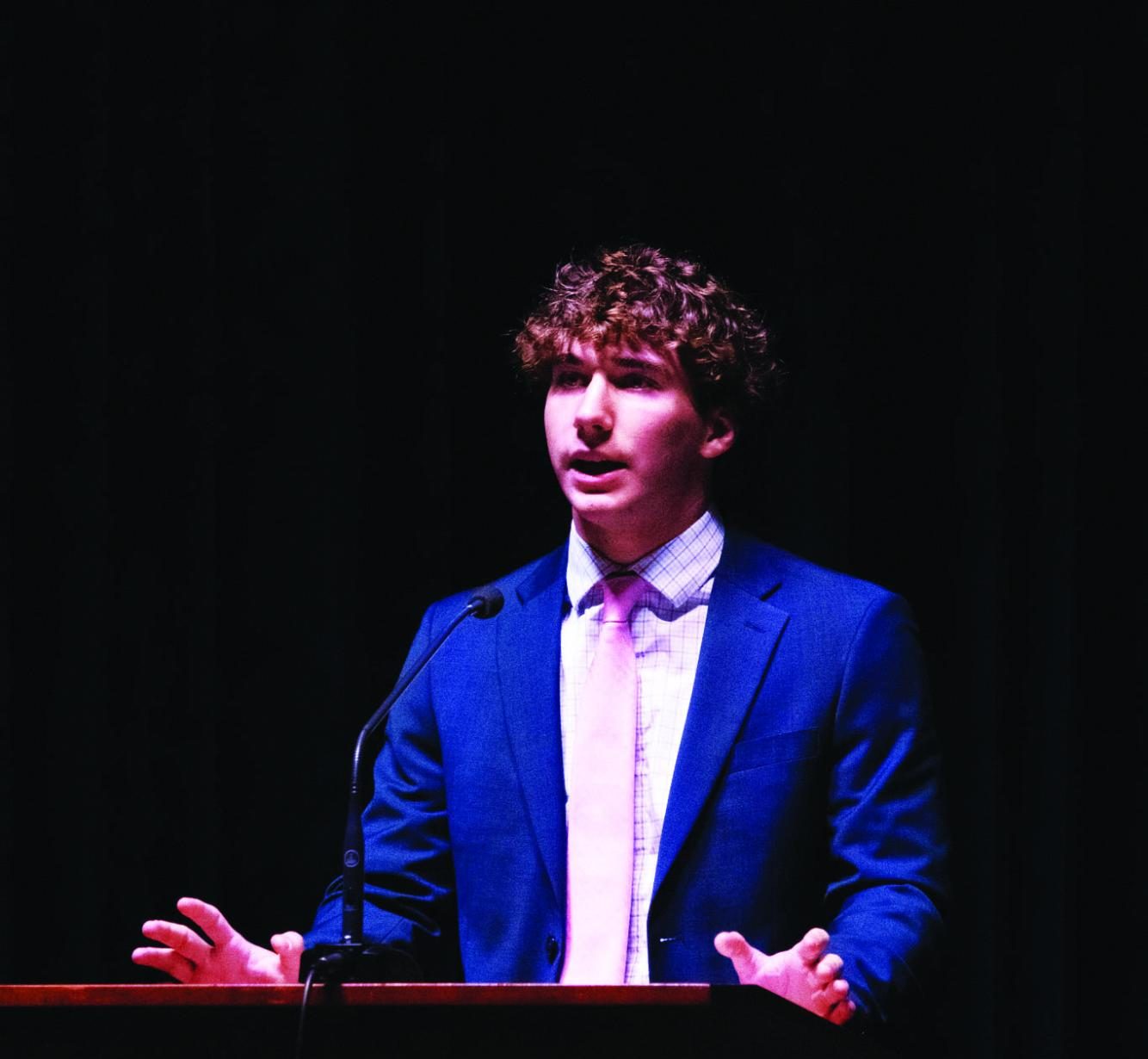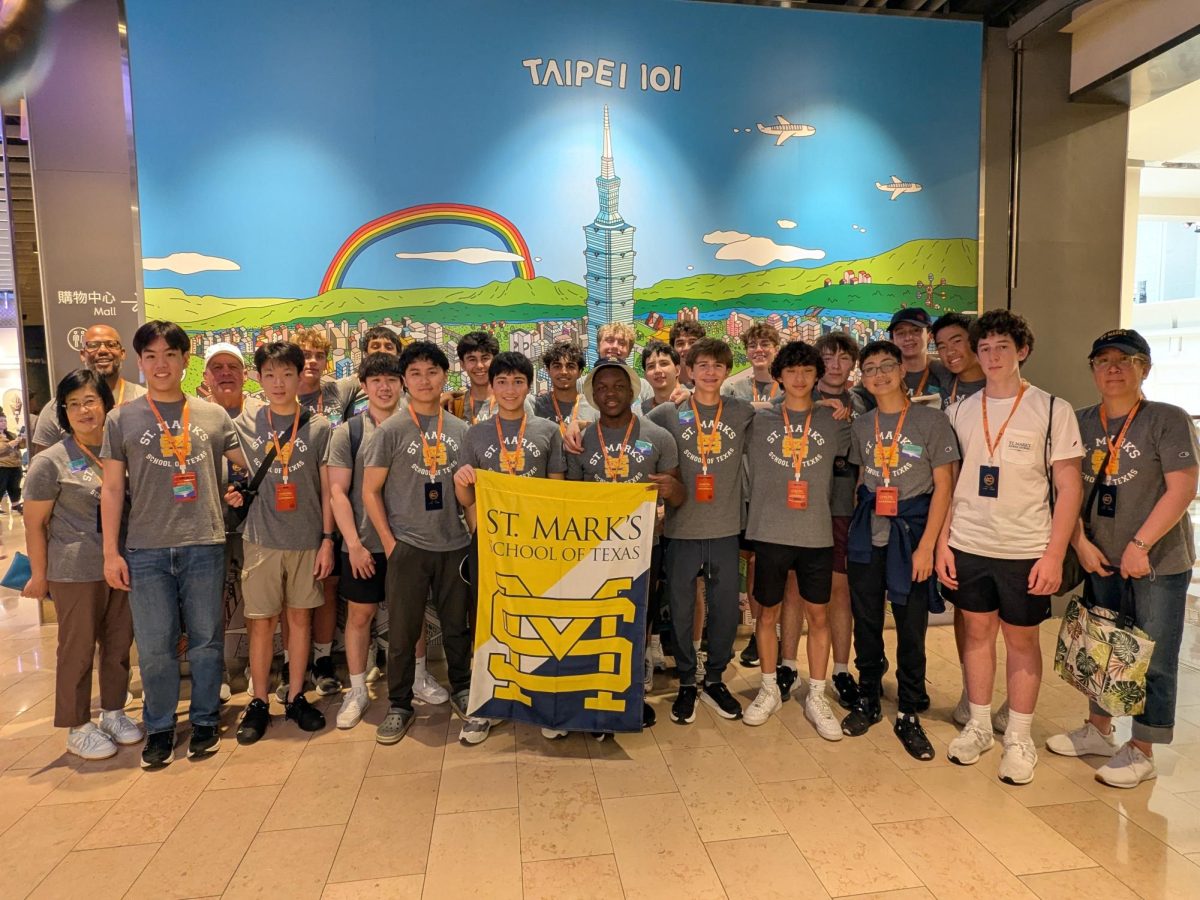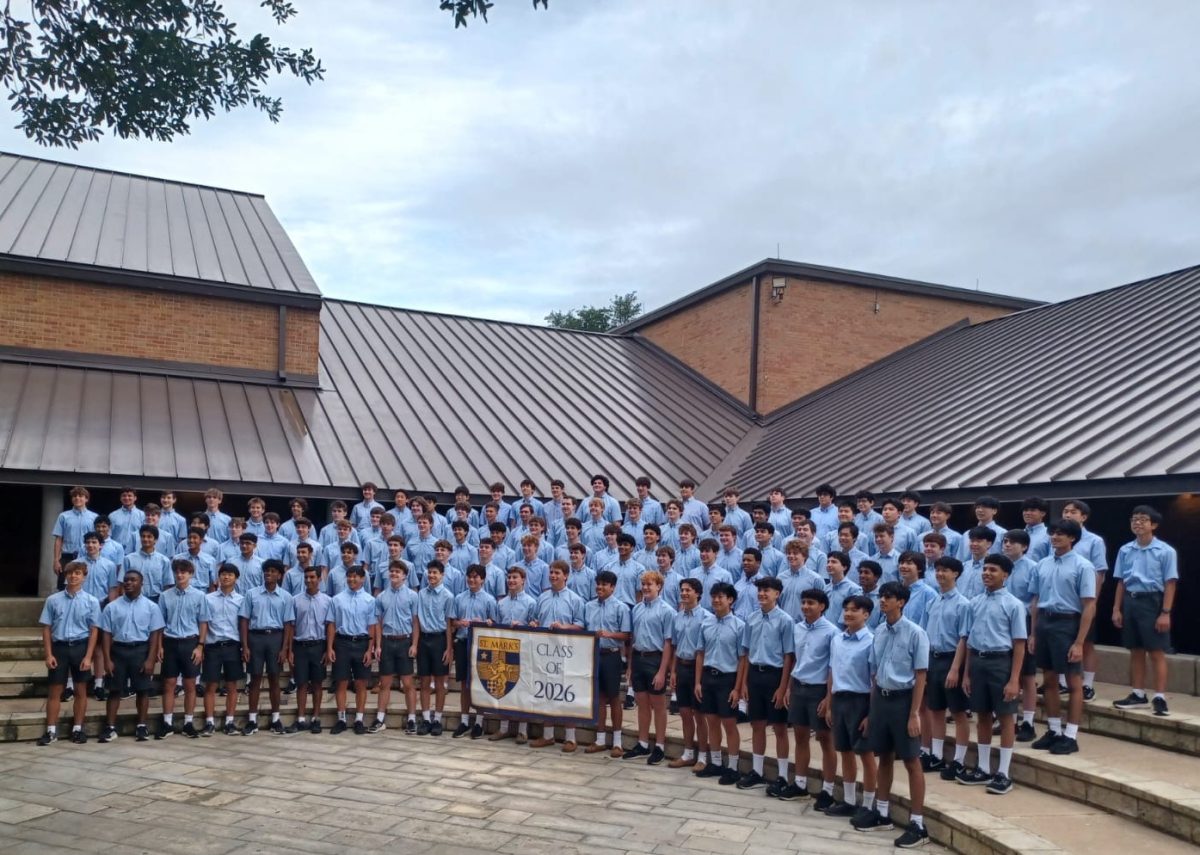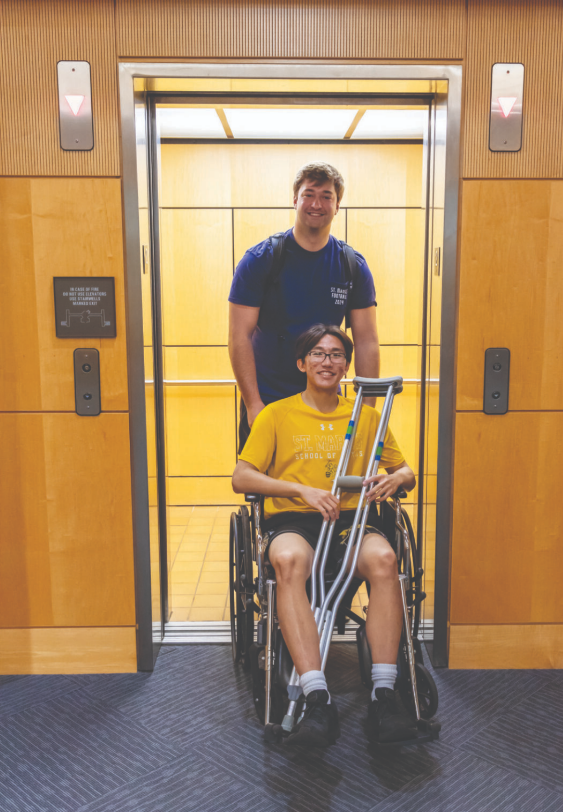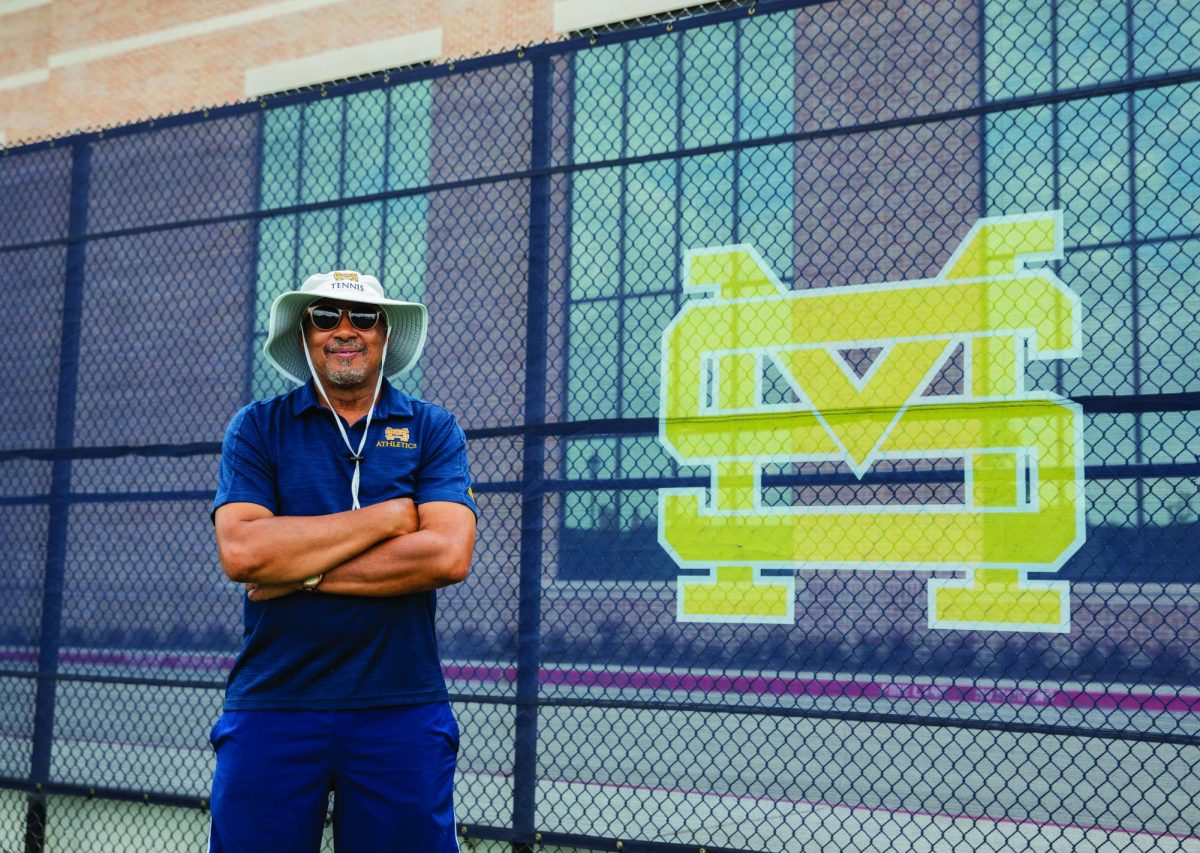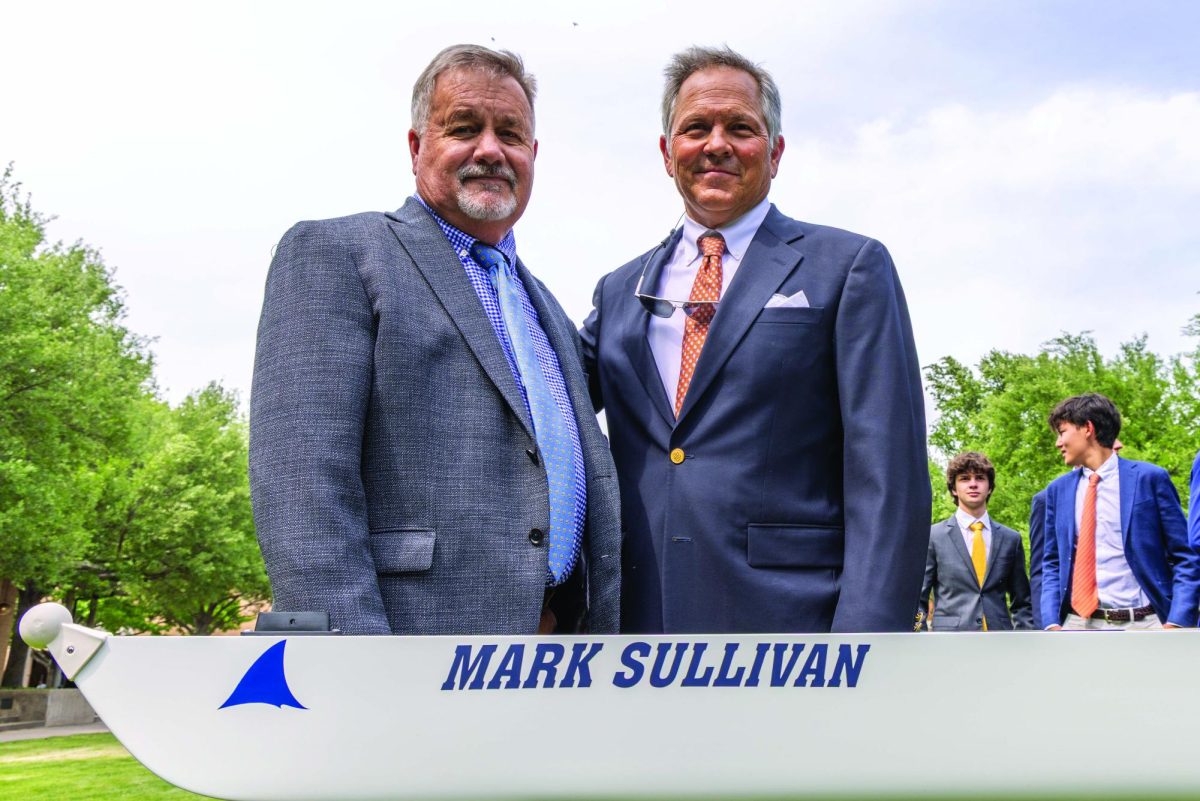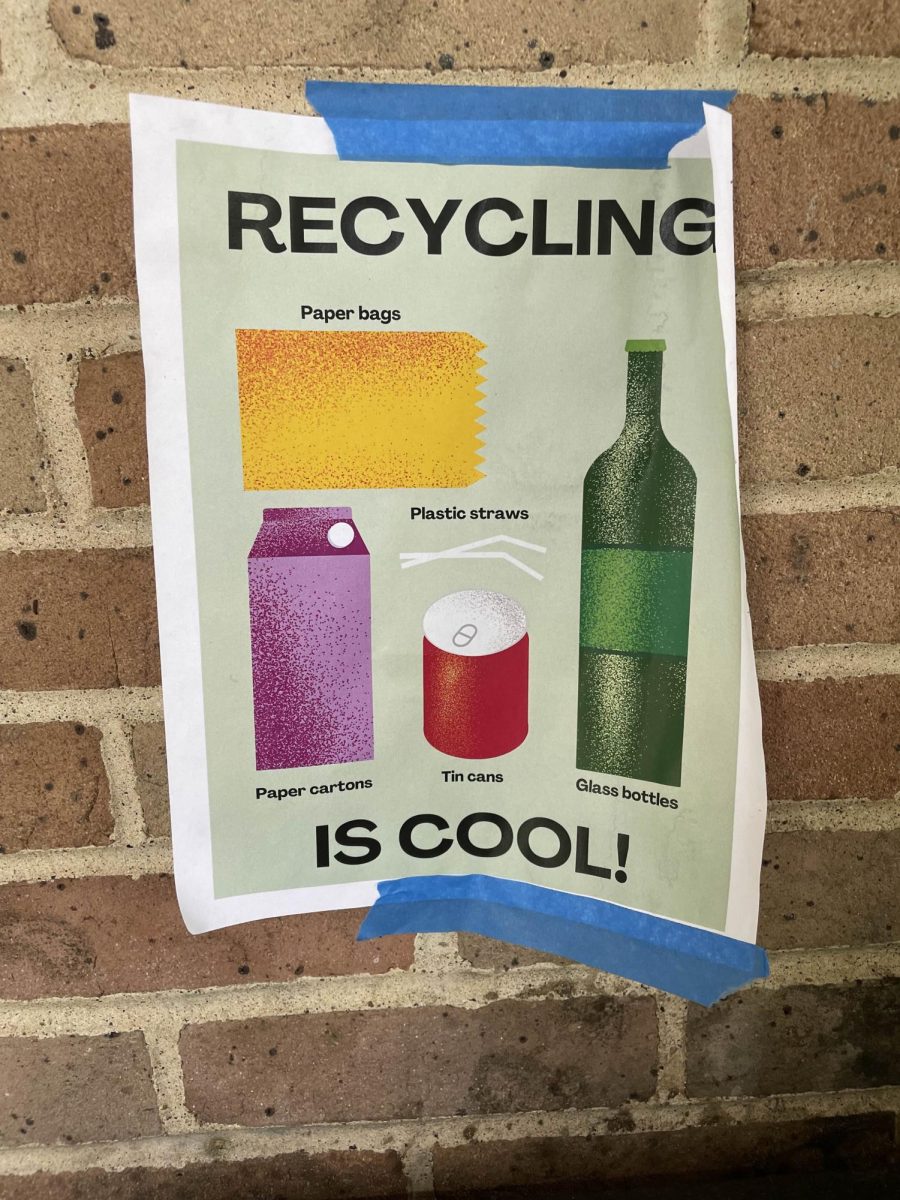There’s a time in most people’s lives when a single moment — one catalytic event — permanently alters their persona. A rapid change of emotions. A monumental shift in mindset. A new appreciation for the past.
For senior Wyatt Loehr, he was only 3 years old when his moment happened.
He was in that cold, sterile, almost lifeless hospital, visiting his mother. She was infirm at that time and couldn’t even communicate with her young boy. Just a few days later, like 40,000 other women each year, his mother passed away from breast cancer.
In that moment, he lost out on support that would last a lifetime. He never had those cherished, yet often unappreciated, memories other kids have: having her console him as he wept; enjoying the car ride home from school as she constantly probed at every detail of the day; her calming presence when the family dog died; or simply her putting on a band-aid for him with the soft and unmistakable touch of a mother’s love.
Instead, Loehr had to struggle by himself, spending an hour crying in the bathroom, trying to figure out how to put on a band-aid after he ran over his finger while picking up an acorn from his scooter.
Instead, he didn’t have his mother to help his family deal with the loss. Rather, he took responsibility. He would take his little brother Oliver and older sister Teagan into the master bedroom, putting something on the TV to ignore the severity of their grief.
Moments like this defined his childhood, one far more independent than others’, and marked a turning point in his life. But the way Wyatt responded, channeling his pain into a lifetime of inspiring movement forward in his communities, exhibits a dedication to fulfilling his mother’s hopes for him.
Fast forward to 2022, his sophomore year. In his pocket, he felt the familiar buzz of a text message. The message was from a close classmate who had just lost his father.
It read: Does it ever stop hurting?
“It doesn’t really stop; there’s always a hole there,” Wyatt replied.
According to Wyatt, though, this hole is hard to define with the lack of definite memories. Since she passed when he was at a young age, he never had a clear image of her from his own experiences.
Everything he knows about her personality is through old stories told by her friends and family. So, as he walks by the main hallway of his house, he sees this one picture of her — his image of her. He imagines her as a guiding voice in his head, asking him to do the right thing. In chapel service, when students are told to pray for those in their hearts, he prays and thinks of his mother. Her presence in his mind pushes him to be better.
His quest for self-improvement, guided by what he knows his mother would want him to do, led Wyatt to the big stage in Decherd Auditorium.
Whenever Wyatt would listen to a great public speaker, he always imagined himself standing up behind the podium, staring out into a crowd that was listening to every word he said. He wanted to be like them — annunciating every word he spoke while conveying a powerful message to a packed audience.
Wyatt had his first big chance with his SuperFanMen role. As one of the student body hype men, he speaks in front of the Upper School each Friday during assemblies. However, his remarks are focused on athletic endeavors and accomplishments, not the robust words he had dreamt of.
During the month of October, however, the school, like many of those across the country, participates in breast cancer awareness month. Each year, the Student Council has an Upper School assembly related to cancer, and the Student Council decided to look for a student to talk to instead of an outside source like a doctor.
When Wyatt was presented with the opportunity to give a This I Believe (TIB) talk at an Upper School assembly, he immediately pursued it. After talking with fellow Student Council members, he was chosen as the speaker.
At first, when writing the speech, he didn’t know what he wanted to focus on. With so much to cover at a meaningful time during the school year, he knew he had to emphasize just one or two things.
After a long process of writing and refining, Wyatt felt ready and had a clear message defined. Rather than focusing on the numbers or research, he decided to focus on the abstract and unquantifiable — the importance of community in hard times.
According to Wyatt, when at St. Mark’s, where the size of the entire school is comparable to the size of a single grade in other public schools, deep connections and strong relationships can be formed among students, forming the unique culture of the institution.
“St. Mark’s is the perfect storm,” Wyatt said. “There’s enough people to find a friend group, but it’s small enough that you’re on a personally connected level with everyone. When something tragic happens, everyone in the school is there to comfort you.”
Even the campus itself is geared towards enhancing this feeling of belonging and acceptance, with interactions that facilitate having genuine conversations and seizing expansive opportunities being encouraged by 10600’s layout.
“Every aspect of St. Mark’s is catered to creating a strong community,” Wyatt said. “The way the campus is designed, there’s a central space to play games that everyone can see. I’ve had days where I don’t really know what to do, but I’ll see, for example, some underclassmen playing spike ball on the quad, and I’ll go there and make new friends. The sense of community is so strong, it’s a wave that keeps rippling through every class that comes in and keeps getting spread.”
As Wyatt said in his TIB talk, the ripple effect of his mother’s loss affected him and his family immensely. But the care he received from those around him made it easier to deal with.
“When I was a child and going through it, the support was a huge thing,” Wyatt said during his TIB talk. “That’s really the point of this talk.”
For Wyatt’s sophomore brother Oliver, growing up without a mother means he never experienced that care that so many take for granted. He never experienced coming out of a gruesome battle on the wrestling mat, only to look into the stands to see his mom, beaming with pride in a way only a mother can, lightening the pain of a narrow defeat.
But what he did see in those stands, what he came home to after an exhausting day at school, what helped him through the highs of championships and the lows of season-ending injuries, was his community.
“I was in a slump during this one big wrestling tournament, and I was 0-2,” Oliver said. “I lost both of them at the last second, and I cried in the locker room. But Teddy Fleiss was there for me, and he helped me get out of my slump and keep trying. Teammates, coaches, they definitely help me when I’m low.”
But the hard part isn’t just receiving care. According to Oliver, what makes a community a community is reciprocating that care. It’s easy to be comforted by someone after a tough loss or a sudden breakup. The challenging job, the duty that everyone owes to their communities, is realizing the suffering of others and responding to it.
“I remember going to get a midnight snack and seeing my dad crying in the living room,” Oliver said. “That’s when I realized everything that was on him and how hard it was being a single father. I had to try harder. I had to do something for him.”
Wyatt and Oliver found that these struggles often were hidden behind forced smiles and passive responses that dismissed the deeper issue. The two found that talking with classmates, however, was a first step to unpacking these emotions and opening up.
“You don’t really want to talk to your own family about your challenges because, in truth, you want to seem strong,” Oliver said. “You don’t want to make it any harder on them because your parents are also going through it at the same time. That’s why friends are really nice: you can talk to them, and they can help you through issues. It’s really important to have good friends who can help you through hard times.”
Being open about feelings and exposing troubles and concerns can help not just the person going through them but those around them struggling with similar issues. That’s the spirit of community — if one person struggles, everyone struggles. And when one person thrives, everyone thrives.
This care came full circle for the pink-out football game on Oct. 18 vs Southwest Preparatory Conference opponent St. John’s. A week after Wyatt’s TIB talk, the community rallied together to sell out the pink shirts sold in the student store. All of the proceeds were donated to Susan G. Komen, a breast cancer foundation.
On that Friday, students who purchased a shirt wore them to school, showing support for the movement and women on campus.
And under the blinding lights of the football field, the football team geared up in pink attire. Pink bicep bands, turf tape, ankle tape, wristbands, and undershirts adorned the players as they took the field.
According to Varsity Football Coach Harry Flaherty, the Pink-Out is a great opportunity to show support for those who have suffered from breast cancer. To him, any time people can not only raise awareness but remind themselves and others that there is more to life than competition, he thinks is a good thing.
Beyond the field, the students packed the student section, making a wall of pink. With an energetic student section led by Wyatt’s fellow SuperFanMen, the appreciation for something bigger than the game could be felt.
All of these events, regardless of whether they’re under the harsh lights of the Norma and Lamar Hunt Stadium or right above the upholstered seats of the Decherd Auditorium, are shining examples of one thing — community.
And as Wyatt said in his speech, the support of those around him is what made him get through his loss. He didn’t have to face his challenges alone, a sentiment his brother echoes.
“The assembly and the pink-out football game had a very potent effect on campus,” Oliver said. “People know it’s not going to get rid of breast cancer, but it helps me and others (on campus) realize we’re not alone in this struggle. It is a struggle, but it’s a united one.”

